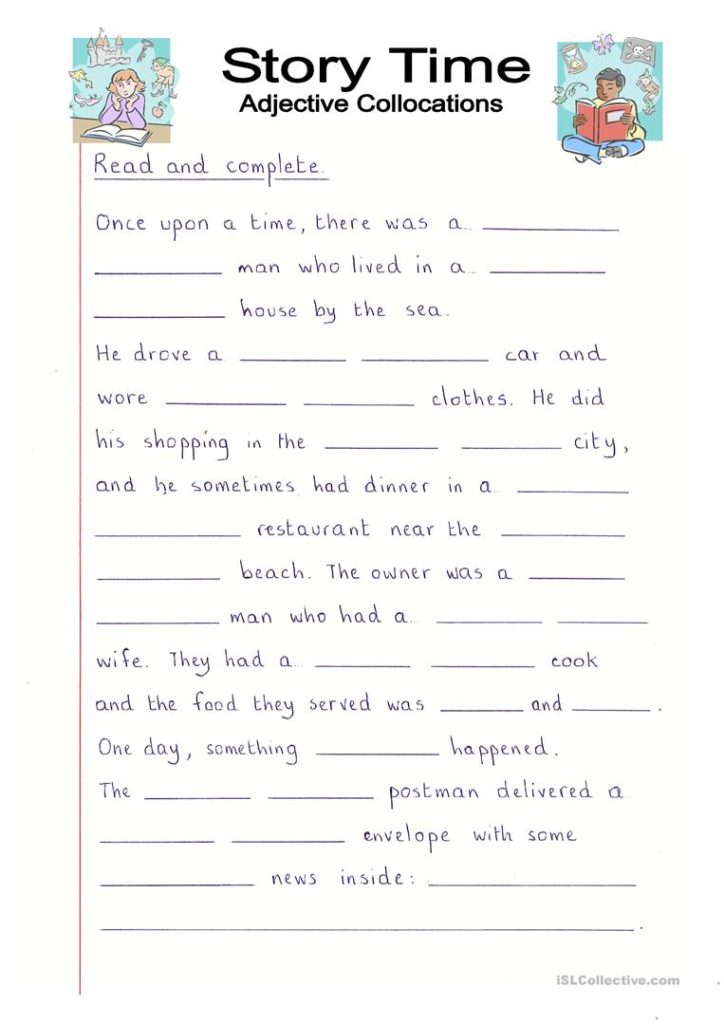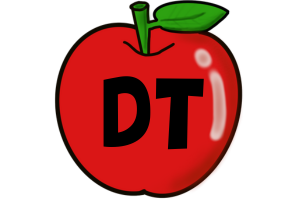Communication is the key to understanding each other. From time immemorial, people have been communicating with each other. It can be in the form of actions, symbols, writing, and much more. The best ways of communication that were a boon to people in the art of speaking. Blessed with the sense of speech, humans started to use their tongue to communicate. Language soon emerged as a communicating medium among people. Every place has its medium of communication, and it varies as per religion, country, and much more. One of the most common languages spoken all around the world is English. It is one of the mandatory languages for career and moving up and climbing stairs of success. Today we are talking about the different types of ‘ESL collocations game’ and how to use it in your teaching.

To the people who have English as their first language, the struggle is less. But to those who have some other native language, English can give them a hard task. Linguistics come with their knack and hacks to make it easier for new learners, and collocation is one of them. It is the base and the key that can help an ESL (English as Second Language) learner’s journey towards perfection efficient and smooth. It is the best way to develop an inclination towards a new language.
ESL Collocations Game – UPDATED 2020

Collocations are a collection of two to three words that frequently occur together in a particular language. They are like the pairs that move along together. They are more like words that have a distinct meaning. Almost every idiom or phrase is a collocation, but not every collocation is an idiom or phrase. Games are an interactive way that helps a person to engage, spend time, and learn new things. It does not just help with easy understanding but is one of the best ways to get an introduction if one is a beginner. The several benefits why one must choose collocation games as an English as Second Language (ESL) learner are:
- They help to realize what word pairs go the best with each other. They help to trace the incorrect pairs not just by letters, but also as sounds and what might make a person feel odd.
- They help new learners feel a particular language as natural. The collocations help to make the language as real as possible and give it a touch as a primary language speaker should have.
- Collocations are abstract, and the pairs formed have no specific reason. They have an endless list, and they help to make a journey in language easier.
- They are not just engaging and fun, but help to make the process of learning light and impressive. Choosing a game over a book can transform the absorbing capacity.
- Games make collocations more impactful than a casual session or a class. It induces a teaching-learning process as it proceeds. This conducive environment can help a person leap several folds higher than usual.
Strong coffee, Tall tree, Sweet dreams are some of the collocations that a person must know. Replacing the first word with something else can make it feel odd and incorrect. Games create an atmosphere of material and self-learning where a person gets to fall and get up by themselves in the best-guided medium. The best of all lessons are learned all by oneself, and interactive and engaging games provide the same. The best way to learn collocation is by using it as a part of sentences often, reading and listening, and learning from the mistakes. The collocation games can be a blend of all the benefits that a person wants in the best possible way.
Short Story With Collocations

Image credit: iSLCollective.com
The first step towards making stories is by making use of collocations to make sentences. These sentences should then melt smoothly and cover up with each other. A story goes the best when the reader can relate and understand every sentence knitted into stories. The following can help a person to create the best of all stories using colocations:
- One must always use a set of collocations that relate to each other. Using random and distinct collocations can make a story feel weird and peculiar.
- Using a collocation dictionary, in the beginning, can help a person choose the best set of collocations. The best available collocations can help a person know and feel a language.
- A person should never jump to make a hundred and thousands of sentences to make a big success story. Starting from micro and short tales, a person can slowly grow up to making the best stories using collocations.
- Words do not have a single collocation. Speaking specifically about English, a single term may have multiple collocations. It is, therefore, essential for a person to learn to choose the right collocation with the sentence.
- A person should try to use collocations that are a part of their routine or day to day activities. It can help them to blend language more easily into their daily life and use it as they move around for work, actions, and much more.
- Short stories take time to build with perfection. One must never lose hope and be patient as they walk around the path of learning something new. The key to successful learning brings with itself, hardships that one has to cross using perseverance.
Learning collocations can come with difficulties and challenges. Not every person comes with a broad mind and a vast memory to grasp everything with a lightning-quick time. To the people who are weak with learning and understanding things, stories can become a good exercise for beginners. Stories make-up everyone’s day to day routine, and it can be, therefore, easy to make. With short stories around the corner, the journey towards learning and excelling a language can become smooth and effortless.
Collocation Matching Exercise
Practice makes a man perfect. With collocations in one hand and determination to learn, a person can hardly go down and fail at learning. Language, with collocation as its first step towards it, brings with itself, not just a spoon or a bowl but loads of exercises. With so many collocations in a language, especially English, one can never think of mugging it up or understanding each one of them. The activities come as the best medium to brace the skills that one has picked up and use them to interact with the known and the unknown collocations. There are several ways in which exercises can help and become a great aid like:
- They help to summarize what one has retained from learning and helps to know the memorizing ability and learnability of a person. Telling a person about adaptability lets a person how open they are to a new language.
- Repeating exercises can help to brush up the skills and keep revising the basics. Basics that are the niche of everything should be the main focus of any newbie.
- Exercises are interactive ways to help a person learn from their own mistakes. Teaching is not just enough when it comes to the practicality of learning a language. Exercises help a person to fall and rise by themselves.
- The activities are the keyhole of a person’s strengths and weaknesses. They are the insight into the pattern of mistake a person makes.
- They help a person with fluency and new collocations. The exercises come as a self-introspection tool that is not just easy to use but also a quick recap of what one learns.
Exercises come in different forms. They do not just confine themselves to particular Exercises come in various formats like match the columns, filling the blanks, multiple choice questions or MCQ, and much more. One of the best and the most effective exercise is implementing the collocations practically as much as possible. It would help to create the highest impact and progress in the path of learning. When combined with games, these exercises become a wonderland for an ESL (English as Second Language) learners to pound and learn. These games in the form of activities become the stepping stones of success where a person never has to worry about drowning.
Phrasal Verbs And Collocations Exercises
Phrasal verbs and collocations go hand in hand. They serve different meanings, but they are the pillars of the English language. Both of these commonly come into use, and a slight change can turn over the essence of a sentence. Unlike collocations, phrasal verbs have their use as verbs that are a mix of verbs and adverbs. They are those verbs that commonly come together and sound correct to the user. They should not be mistaken to be collocations as they are not phrases. They serve their importance in the following way:
- They provide the grammatical structures that a language follows without learning about grammar in detail. These simple grammar structures can help them learn the meaning that they did not grasp.
- They help to learn the language of the speakers smoothly and help them to blend into the crowd of the native speakers. They are the common phrasal verbs that a person would often speak.
- Formal language learning is never enough. The phrasal verbs help a person dive into the general part of a language that they are sure to come across if they make use of it.
- Phrasal verbs like collocations have too many meanings for a specific set of words. It is, therefore, vital to know the meaning and understand them before bringing them into use.
Learning never gets over, and for a language like English, it is endless. With phrasal verbs and collocations in the tray, the journey can become comfortable and smooth. They help a person learn the basics along with the grammar without actually spending time to gain grammar points. They are the basics of a new learner and the foundation of the speaking and writing skills. Getting to know the right phrasal verbs and collocations can help them distinguish the right from wrong not just by the words but also by the way it sounds. It is, therefore, the first and an essential part to be included in the index of an ESL (English as a Second Language) learner. Once a person gets to know about these two, they gain confidence in themselves about what next they can achieve. With the knowledge of Phrasal verbs and collocations in hand, a handful more can make a beginner into an advanced knowledge holder of a language.
Languages are fun to learn and amazing. They help to create a strong base of communication and an attractive portfolio. Every dialect is unique and comes with its own set of rules, grammar, and ways. It is, therefore, impossible to learn languages just by translation. A translated learning would lead to faulty and far from perfection language acquisition. A person does not acquire knowledge of a dialect in a click. One has to nurture it and bring it in use to excel it. It requires not just books, but it needs assistance and the best technique and procedure to absorb it one by one. Collocations can help to attain perfection and learn a language as one should learn. English keeps collocations as one of the essential parts in the step of grasping it. They help to set the foundation of a language. If the foundation is weak, the entire building has the risk of becoming fragile. To strengthen the speaking skills and command over a new skill.
Every generation has something that they incline towards in common. Technology is soon taking that place in everyone’s life, combining technology and collocations in the form of games. It can, therefore, be the best of all choices for the present and the generations to come. With games and interactive exercises in the way of gaining something new, learning can become fun and fascinating. Right?
Please check out our other articles here

